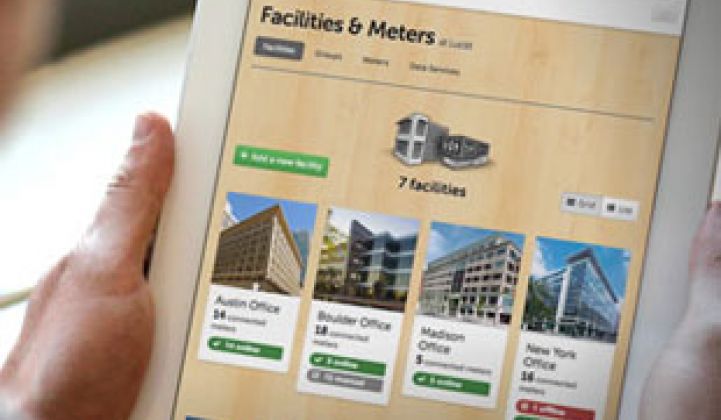Building efficiency software developer Lucid just received a gift for its tenth birthday: the closure of a series-B funding round for $8 million.
The round was led by Formation 8 Partners, with a follow-up investment from Zetta Venture Partners.
The money will be used to grow Lucid's engineering and design team as it builds out the second version of its BuildingOS, the software platform it released last August that pulls together disparate systems into a single interface.
A lot has changed at Lucid since it was founded at Oberlin College in 2004 as a behavioral dashboard provider. At that time, the industry was "a complete vacuum," said CEO Vladi Shunturov. Today, there are hundreds of software companies attempting to sell to building owners or efficiency contractors, making it difficult to stand out.
Rather than focus on straight dashboarding, which the company hasn't put much new design effort into since 2009, Lucid's leadership team decided to attack the problem of connectivity in buildings. With so many buildings getting outfitted with different meters, sub-meters, lighting and HVAC controls, and distributed energy systems, Shunturov saw the need to integrate them all together easily. The idea for BuildingOS was born.
More importantly, Lucid set out to create a tool that could be used by anyone in a building, not just engineering types with deep technical expertise.
"We wanted to democratize energy management in buildings," said Shunturov. "There's always going to be the next big thermostat or piece of hardware, which then requires a new password and system to control. Our customers were telling us they want a central place to go."
Listening to customers -- not raising more money -- was the most important driver of Lucid's latest operating system. Five years ago, Lucid closed a $1.5 million Series A venture round. Rather than rely on continued support from venture investors, the company grew organically through customer sales and became profitable, said Shunturov.
"Resource constraints forced us to make some tough choices. Not having a lot of access to capital made us really understand what customers found valuable," he said.
The team is now at 40 people and it has deployed software for 400 customers in thousands of buildings. Lucid also recently won a contract to monitor municipal buildings in Washington, D.C. as part of a city-wide effort to reduce government energy consumption by 20 percent over the next year and a half. Although it doesn't have the reach of the legacy automation companies, Lucid is scoring some big-name customers like Google, Sony and Yahoo, while also pulling in entire school districts to the platform.
For the smaller customers who aren't able to pay large amounts of money for new hardware, Lucid has partnered with Rainforest Automation to deploy ZigBee gateways that can be installed quickly without the help of an electrician. The cost is only $1,000 annually and can provide data to schools and commercial buildings with limited budgets for energy-related retrofits. Shunturov called Rainforest Automation's approach "a game-changer."
After ten years of bootstrapping, Lucid may have found its stride. Now it has some fresh capital to build on its new operating system and create a second version.
"It took us ten years to get here, but we've got a product where we can bring all technologies into one place," said Shunturov.
Watch Lucid CEO Vladi Shunturov give a TEDx talk about the potential for software in buildings.



